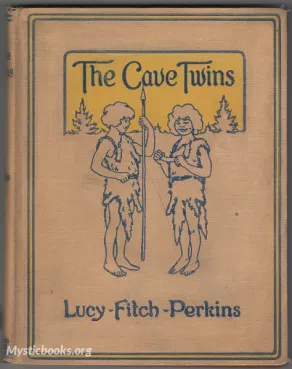
Unveiling a Parallel
'Unveiling a Parallel' Summary
Jones and Merchant differed from some other feminist novelists of their generation (like Corbett and Lane, mentioned above) in that they made their fictional protagonist male instead of female. Their hero travels to the planet Mars in an "aeroplane." (That term had originated in France in 1879; this novel provided one of the earliest uses of the word in English.) The nameless traveller visits two different "Marsian" societies; in both, there is equality between men and women. In one, Paleveria, women have adopted the negative characteristics of men; in Caskia, the other, gender equality "has made both sexes kind, loving, and generous."
The technological level is comparable on both planets; the Martians rely on Martian horses for transport. The narrator first lands in the Martian country of Paleveria, which is a republican and capitalist state, with clear class divisions; the people are vegetarians, and dress in loose robes. Their homes (at least among the aristocrats) are classical and palatial, with marble floors and statuary, silk hangings, and frescoes on the walls. Women in Paleveria can vote, hold political office, and run businesses; they propose marriage to men, have sex with male prostitutes, and even participate in wrestling matches.
The traveller stays with an astronomer named Severnius, in the city of Thursia; he studies diligently and learns the language. Severnius acts as his guide to Paleverian society — as does the astronomer's beautiful sister Elodia. The narrator soon falls in love with Elodia, but is shocked by her liberated traits and habits. Elodia is a banker by profession; she drinks alcohol and imbibes a Martian drug, has affairs with men, and eventually reveals an illegitimate child.
Severnius, for his part, asks the narrator about Earth, and the traveller is hard put to provide logical and acceptable explanations for many Earthly customs, mainly involving the distinctions between the sexes. The narrator is appalled by women participating in martial arts — and Elodia condemns this too; but she also condemns men's boxing matches, which the traveller accepts as natural. The narrator and Severnius debate several other issues including women, specifically centered around their nature, which the narrator argues is inherent to all women while Severnius argues that character is based entirely on the individual and is a separate sphere than gender.
While on a walk with Elodia, the narrator confronts her about many of these differences and the anxiety he has felt on the planet. He insists that she is better than the version of herself she presents and pushes a more conservative version of femininity that he believes she could embody. It is then that Elodia reveals that she has had a child out of wedlock that she does not claim. The narrator is profoundly shocked when he learns of Elodia's illegitimate daughter; he leaves for a visit to Caskia. This northern country has a more co-operative and egalitarian social and economic order than Paleveria has; its people cultivate intellectual, artistic, and spiritual qualities. Caskia approaches the status of a Martian Utopia. In the city of Lunismar, the traveller meets another Martian woman, Ariadne, who is more traditionally feminine by conservative Earthly standards. He considers her "the highest and purest thing under heaven." He also meets a venerated teacher called The Master; the two have a long spiritual conversation. The narrator returns to Earth.
Unveiling a Parallel has been reprinted in several modern editions.
Book Details
Language
EnglishOriginal Language
EnglishPublished In
1893Genre/Category
Tags/Keywords
Download eBooks
Listen/Download Audiobook
- Select Speed
Related books

Expedition of Humphry Clinker by Tobias Smollett
Humphry Clinker follows a group of characters as they journey through 18th-century England, encountering a colorful cast of personalities and experien...

Coco Bolo: King of the Floating Island by Sidford Frederick Hamp
Sisters Margaret and Frances wait for their younger brother Edward to go for a nap before embarking on the adventure of trying to stand on the heads o...

Jewish Fairy Tales and Fables by Gertrude Landa
Gertrude Landa or rather, Hannah Gittel (Annie Gertrude) Landa nee Gordon wrote under the pen-name of Aunt Naomi. The stories that she relates in this...

Pascha von Buda by Heinrich Zschokke
Set during the siege of Vienna by the Turks, "Pascha von Buda" is a historical novel that explores the themes of friendship, love, and sacrifice. The...

goldne Topf by E. T. A. Hoffmann
The Golden Pot is a novella by E.T.A. Hoffmann. It tells the story of Anselmus, a poor student who falls in love with Serpentina, the daughter of the...

The Cave Twins by Lucy Fitch Perkins
This timeless story follows the exciting adventures of two brave twins, Taro and Take, who live in a cave during the prehistoric era. Set in a time lo...

Cut by the County; or, Grace Darnel by Mary Elizabeth Braddon
Darnel Park is situated in a county that thrives on gossip and secrets, and the Darnel family, as it turns out, has many of them. An attempt at Sir Al...

The Coxon Fund by Henry James
The story revolves around Saltram and a group of people who are fascinated by him. Ruth Anvoy, a young American woman with a wealthy father, comes to...

Lady of the Basement Flat by Mrs. George de Horne Vaizey
This book delves into the experiences of a young woman who seeks independence in London. She navigates the challenges of navigating city life and fin...

The Marble Faun by Nathaniel Hawthorne
The Marble Faun is Hawthorne's most unusual romance. Writing on the eve of the American Civil War, Hawthorne set his story in a fantastical Italy. The...
Reviews for Unveiling a Parallel
No reviews posted or approved, yet...